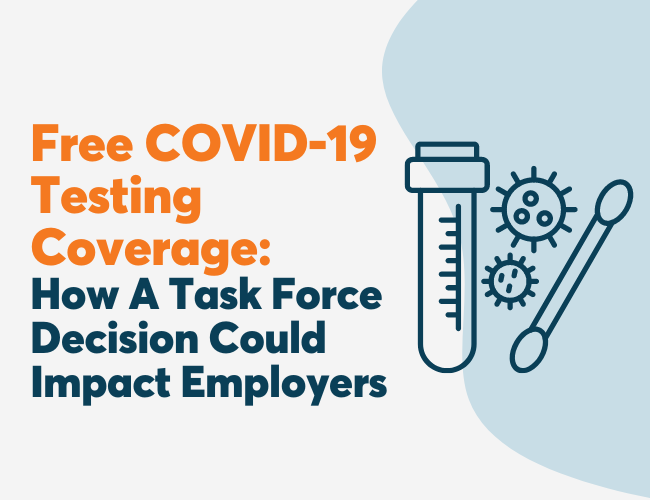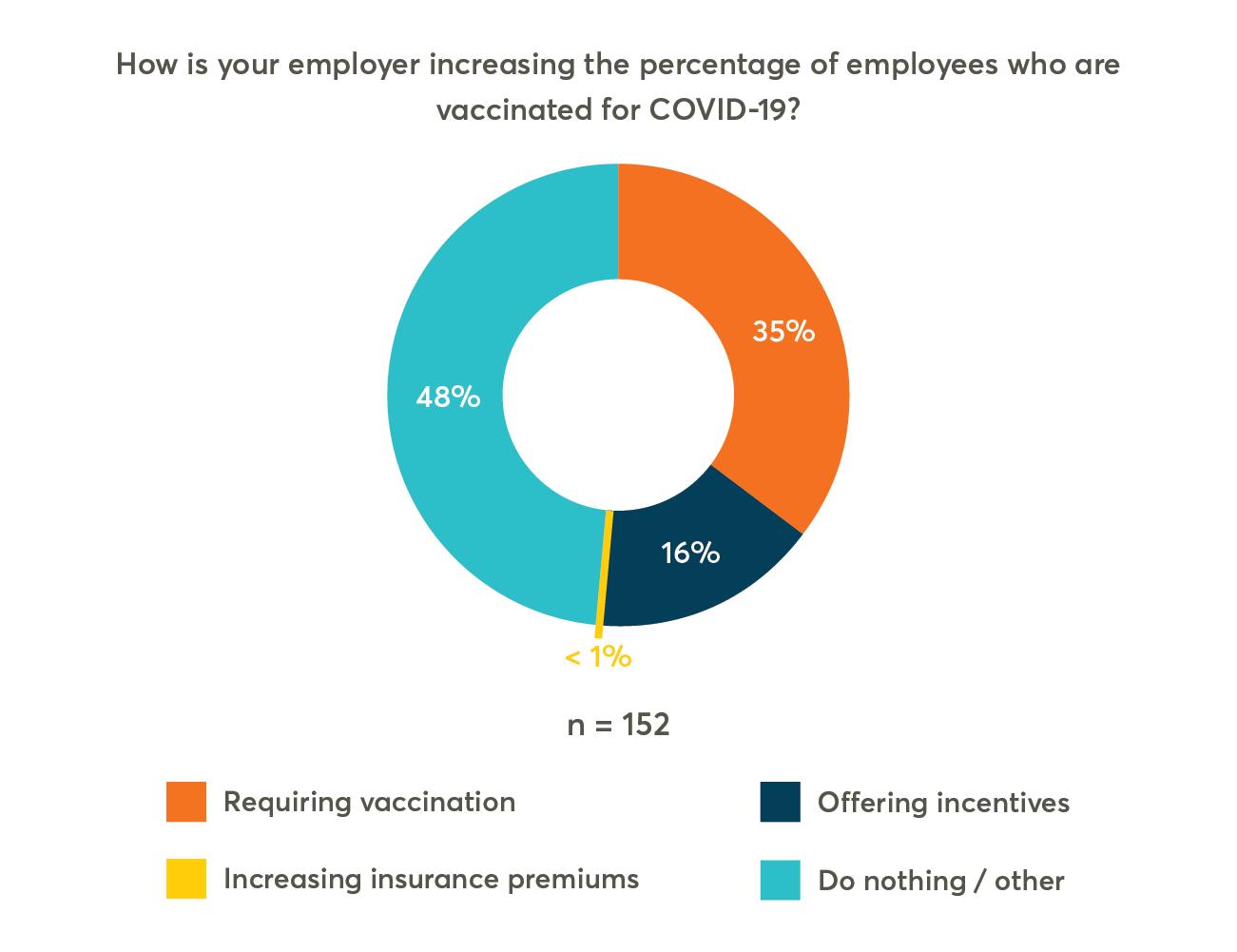As far as airborne infections are concerned, the public eye has been turned almost exclusively towards COVID-19 for the past year and a half. Organizations that retain such a narrow focus may be caught off guard by an unpredictable and unusually severe flu season.
Why This Year’s Flu Season Might Be Worse
There are a number of reasons experts forecast the upcoming flu season to be worse than the previous year. Understanding the factors that influence the forecast can often help employers communicate the risk to employees.
Increased Exposure
During last year’s flu season, many individuals were engaging in a variety of habits and behaviors to avoid coming into contact with COVID-19 (e.g., social-distancing, masking, working remotely, etc.) These actions decreased exposure to more than just COVID-19. In particular, those who practiced these safety measures were far less likely to come into contact with or contract the flu. As a result, last year’s flu season was unusually mild.
Though some of the protective measures have been kept in place, others are being adhered to less stringently or have been dropped altogether. For instance, many schools have opened up for in-person learning (sometimes without mask mandates). Some businesses are beginning to bring employees back into the office (though many are postponing their return to work plans). Occupancy restrictions and masking requirements at many restaurants and concert halls have been lifted entirely. As result, exposure rates may be far higher this year.
Weakened Immune Responses
Not only are people more likely to come in contact with the flu, but they may also have weakened immune responses to it as well. This is in part due to the protective measures mentioned above that many have took in order to avoid catching COVID-19. While these actions were necessary to significantly reduce the risk of catching and spreading COVID-19, an unintended consequence may be a weaker immune response to other diseases, such as the flu.
In many ways, this is clearly a good thing. Last year, far fewer individuals were hospitalized for the flu. However, because the strength of one’s immune response to the current season’s flu variants can depend on the degree to which they encountered the flu in previous years, a widespread lack of exposure might result in more frequent and severe flu cases for those who decide not to get vaccinated.
The concern is exacerbated by the fact that many individuals may be less motivated to receive the flu vaccine this year. For some, hesitancy with regard to the COVID-19 vaccine has evolved into a more general reluctance toward receiving vaccines of various types, including the flu vaccine. Others have simply grown tired of planning for, receiving, and recovering from vaccines, which they may already have done twice this year. With a potentially weakened immune response unimproved by this year’s vaccine, these individuals are more likely to contract the flu and to have a more severe reaction when they get it.
Takeaway
Since flu season is nearing, employers must act early and quickly in order to help employees prepare for an unpredictable flu season. In particular, companies must:
- Raise awareness: For many employees, simply learning about the expected severity of year’s flu season may be enough to motivate them to get vaccinated and continue to take extra precautions when interacting with others.
In addition to informing employees of the dangers associated with the upcoming flu season, employers should make sure employees are aware of some recent developments in vaccine procedures and technologies that stand to make the process of receiving a flu vaccine quicker and easier. For instance, this year’s flu vaccine can be delivered via a nasal spray. For those who are not looking forward to another injection, this can help remove some of the stress associated with getting the flu vaccine. Additionally, vaccine makers are expected to produce COVID-19 flu vaccine combos. As a result, employees looking to receive either first or second dose or a booster can receive it alongside the flu vaccine, saving them another trip and injection. - Encourage and incentivize vaccinations: Knowing about the potential dangers associated with this year’s flu season may not be enough for some employees. These workers may require additional incentives in order to feel that getting vaccinated is worth the time and effort. These incentives can include monetary rewards, product giveaways, or free rides to vaccination sites. For more information on how to incentivize employees to receive vaccines or on the potential legal ramifications of doing so, check out Wellable’s review of the US Equal Opportunity Employment Commission’s guidance on vaccine incentives.












